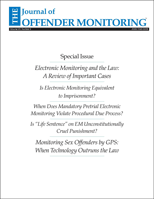Artificial Intelligence and Correctional Practice: The Council of Europe Draft Recommendation on the Use of AI in Prisons and Probation
Author: Mike Nellis.
Source: Volume 37, Number 01, Spring/Summer 2024 , pp.11-17(7)

< previous article |next article > |return to table of contents
Abstract:
Since 2021, the Council for Penological Cooperation (PC-CP), a long established and much respected subcommittee concerned with a variety of penal matters, has been examining the “Ethical and Organizational Aspects of the use of Artificial Intelligence and Related Digital Technologies by Prison and Probation Services”—including, crucially, the private companies who use and sell sophisticated digital products and services to these agencies. At present its putative Recommendation from 2023 is only in draft form. Although not yet formally ratified as official guidance by the Council of Europe, it is publicly available online and warrants attention by anyone wrestling with upcoming uses of AI in prisons and probation for the depth and quality of its thinking—but also for its shortcomings. This paper critically explores the Draft Recommendation. And concludes with some observations on AI and public services drawn from a British think tank, which indicate how difficult it might be to hold the particular line drawn by the PC-CP between AI’s risks and benefits, and between automatable and intrinsically human tasks.Keywords: Artificial Intelligence; Council for Penological Cooperation (PC-CP); Tony Blair Institute
Affiliations:
1: School of Law, University of Strathclyde.